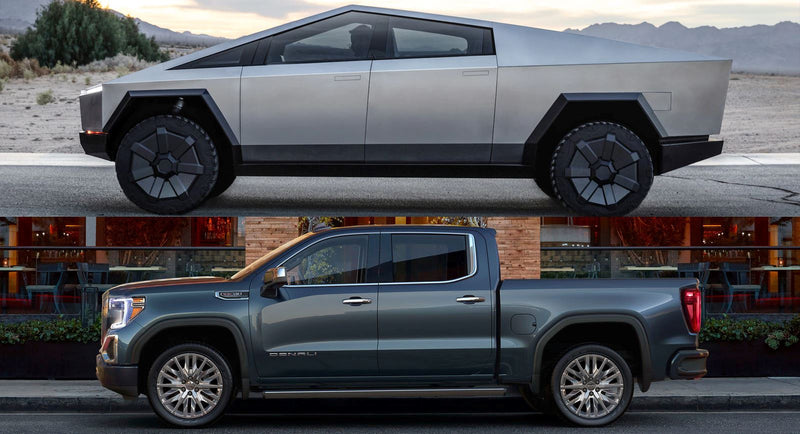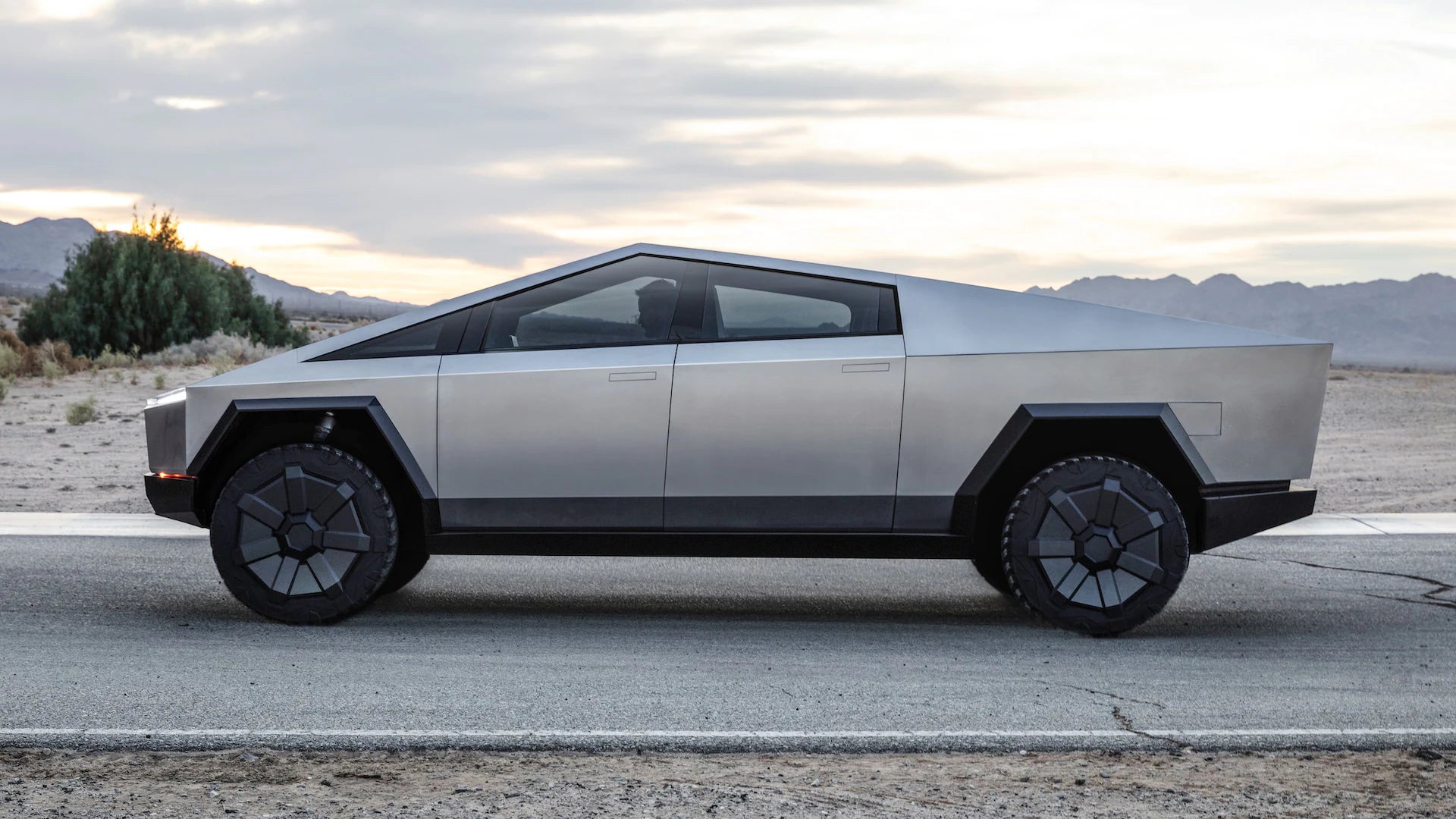Sometimes, buying a car just doesn't make sense. You've got to have a truck. Cars can only transport passengers from point A to point B. Trucks can also accomplish this, but occasionally you need to transport things. You can avoid dropping a ton of cash on shipping services if you can haul things yourself.
Looking at Southern America and the Mid-West, the pickup truck has traditionally been the go-to automobile. The go-to vehicle here is by far a pickup — particularly, the Ford F-150 — accounting for over a quarter of all new vehicle sales, with huge SUVs classified as "light trucks" accounting for the majority of the remainder.
Texas as a whole accounts for almost one out of every six pickups sold in the United States. They are popular with more than just consumers. Approximately two-thirds of the stolen cars in this area are pickup trucks. Three men were sentenced in 2018 for forcing an elderly woman to buy them pickups.
And when the renowned automobile auctioneering house Mecum staged a large auction in Houston last April, they didn't even bother running cars through it; only trucks were auctioned.
So, what should a good old-fashioned devoted Ford truck owner think of Tesla's futuristic Cybertruck?
Breaking into a $177.7 billion dollar market
This is the prospect – and tremendous gamble – lurking over the car industry. The interest in electric trucks represents a chance for new entrepreneurs to enter the industry's most profitable sector. Tesla's Cybertruck leads the field, at least in terms of mindshare, reflecting Elon Musk's hallmark technique of upending established competitors with flamboyant design and astonishing features.
However, the Cybertruck, which is not anticipated to enter production until 2023, is already up against a fleet of competitors. Rivian, established by an MIT Ph.D. has the best potential to be a Tesla rival.
Then there's Bollinger Motors, which is targeting the off-roading audience with an electric pickup that looks like a Range Rover. Atlis Motor Vehicles, on the other hand, is aiming directly at the more traditional areas of the market with a vehicle designed to match the carrying capabilities of traditional pickups. GMC is also showing up with their Hummer EV. And not to mention, of course, the Ford F-150 Lightning.
It's no surprise that Elon Musk is going all out to generate interest in the company's upcoming foray into the pickup market. Musk, ever the showman, captured our attention in November with the theatrical debut at Tesla's design studio just outside Los Angeles.
Never mind that two demonstrations of the Cybertruck's shatterproof glass windows' indestructibility ended in, well, two shattered panes.
Can it beat Ford?
Tesla mainly seduces electric vehicle buyers in two ways: either with cash (gas savings) or through their conscience (emissions). Truck owners do not care much about either. What matters to them the most is raw unfiltered power.
According to a survey done by Autolist, two-thirds of those who have ever had a truck said that if they purchased an electric pickup, it would most likely be from Ford or GM. Brandon Christ, who owns a dry-cleaning equipment repair shop in Houston and is shopping for a pickup to replace his Dodge van, agrees with this sentiment. "The closer an electric vehicle is to what Ford truck buyers have been buying, the better it will perform," he adds. "They're not going to change brands."
In terms of what they want, truck buyers are savvier than car buyers. They consider their truck to be a tool. And the Cybertruck's specifications aren't bad either. It offers a cheaper cost of ownership due to gas savings and substantially decreased maintenance expenses.
Ben Sullins is a statistical analyst who runs the "Teslanomics" green technology channel on YouTube. He compared the five-year total expenses of owning a Cybertruck vs a standard Ford F-150. The Tesla truck would save about $20,000 in total.
Towing and Hauling
Another important feature for truck owners is the capacity to handle large cargo. Towing a boat, trailer hauling, construction or landscaping equipment, or a camper, things like these are owned by over 1 million Americans. According to Tesla devotees, that's a significant potential selling point for the Cybertruck, which Musk claims can pull 14,000 pounds of trailer, 500 pounds more than a normal F-150. Elon Musk even shared a video of a Cybertruck effortlessly dragging an F-150 in a tug of war to emphasize this argument.
Towing and hauling, on the other hand, are major issues for electric vehicles since even little loads may quickly drain the batteries. According to RV Travel, an online newsletter for recreational vehicle owners, a Cybertruck carrying a normal RV-style trailer would need to stop every 72 miles to recharge.
Tesla supporters argue that, while the Cybertruck is a better carrier, most pickup owners don't do much towing or hauling anyway. And they are correct. Three-quarters of truck owners do not tow more than once a year.
Other than for commuting, the great majority of pickups are rarely utilized on the job. But most high-performance automobile buyers don't go drag racing at 120 mph either, yet they still want the performance. The same is true for truck owners and haulers.
Accessible Charging
The biggest obstacle to truck drivers going eclectic isn’t a feature. The problem is basically the same as it has been with the total EV market: a very minuscule number of charging stations. People simply dislike the thought of a car that cannot be quickly refueled when it runs out of fuel.
We're accustomed to having a gas station within walking distance of wherever we are, whenever we need it, and filling up in five minutes. How do you persuade people to switch to having to arrange their visits around charging stations, then having to wait half an hour for one to open up, and then having to hang out at a mall for a few hours while their EV charges?
If "range anxiety," or the prospect of running out of fuel is frightening for car buyers, it will be a deal breaker for many truck drivers. You see pickups that are frequently used for construction, delivery, maintenance, landscaping, and other jobs that include a potentially battery-draining stream of unpredictable all-day journeys. Safety and durability are other concerns.
Batteries of any capacity lose charge when they are cold and can be destroyed if a vehicle is parked in the hot sun for an extended period of time – just the type of finicky constraints that truck owners despise.
Only 20,000 charging stations are presently available in the United States. This is thanks to Tesla and a developing sector that includes EVgo, ChargePoint, and Electrify America. But that still pales in comparison to the 170,000 petrol stations that dot the highways. Expensive charging stations will struggle to scale until revenue demonstrates sufficient demand.
Conclusion
Until the Cybertruck launches in 2023, we can not be certain of the market metrics. Ford EV Sales Increased 77% In June 2022, so if anything, the Cybertruck needs to catch up fast. We believe that a majority of people buying the this EV will be completely new to pickups, but the utility offered might just make the Cybertruck a popular choice in other markets. The implications of buying a truck were mostly conservative, and Tesla is bound to completely change that image.











